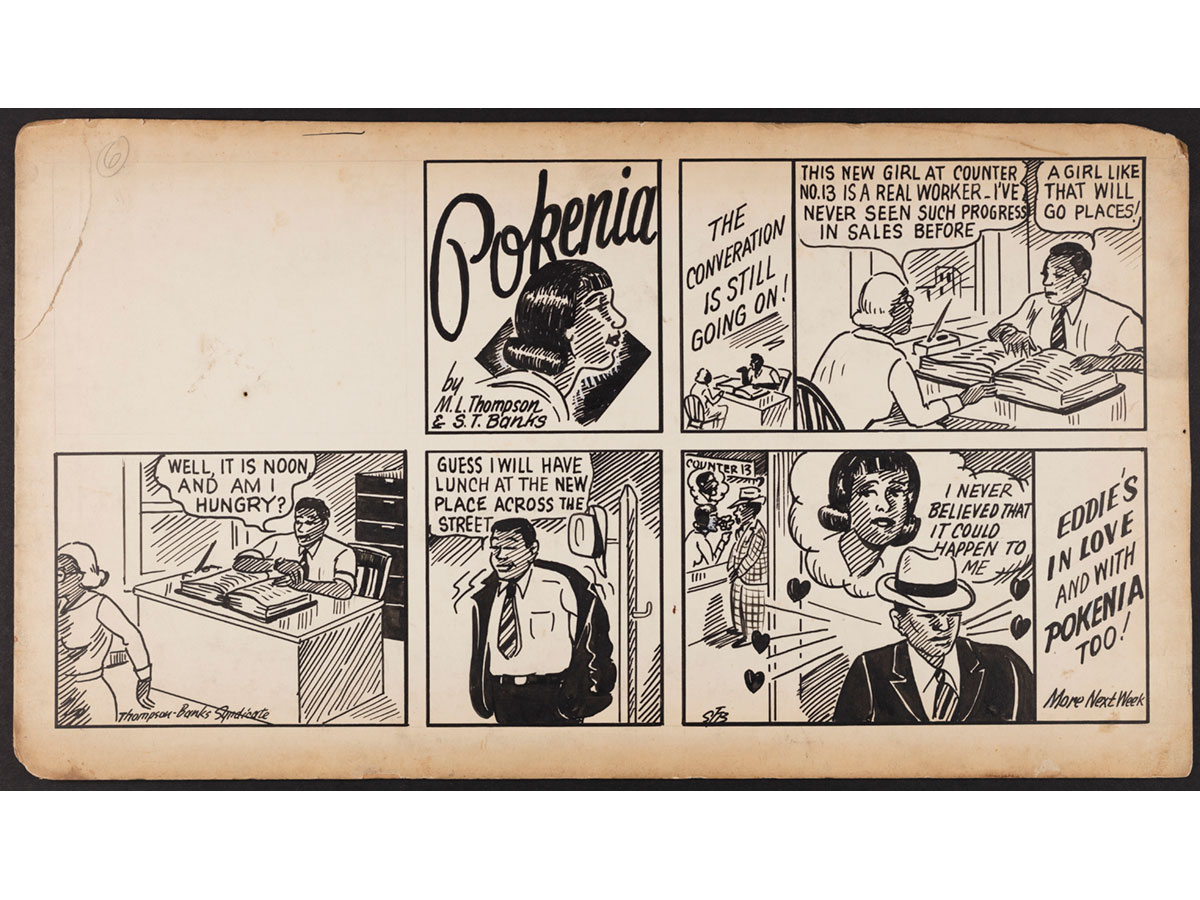Aggie Toppins
Associate Professor
Washington University in St. Louis
Spencer Thornton Banks (1912–1983), was a Black illustrator and graphic designer who practiced in St. Louis for over 50 years. His life and work were contextualized by significant social changes on a national level—the Great Migration, World War II, and Civil Rights—as well as a local level in a city deemed “The Broken Heart of America,” by historian Walter Johnson. The history of St. Louis is a story of racial segregation, removal, and abandonment. Banks’ aesthetic attests to empowerment and self-representation amidst urban decline. His comic strip “Pokenia,” which ran in the St. Louis Argus in 1939, is a rare example of a narrative about Black professional life, by a Black artist, published in a Black newspaper. Banks was also regularly commissioned to promote events, such as the National Negro Baseball League Championship and the Pine Street Y Circus, which were important to St. Louis’ Black community. This pecha kucha will present Banks’ oeuvre in the context of his time and place while exploring the way his forms expressed autonomy and self-respect.
A rarely discussed Black graphic artist of exceptional formal merit, Spencer Thornton Banks is a historical case study in the links between aesthetics and culture. His work has not been included in traditional design canons, in part because of historiographical bias, yet he coincided with a transitional and tumultuous time in St. Louis and national history. His unique approach to visual communication issued positive images of Black cultural life. This is a relevant topic in communication design in that it aims to expand the scope of historical knowledge through contributions from an underrepresented community while noting the concurrence of Banks’ celebratory representations with dominant narratives that evince mainstream racist ideology.
This research was presented at the Design Incubation Colloquium 7.2: 109th CAA Annual Conference on Wednesday, February 10, 2021.
